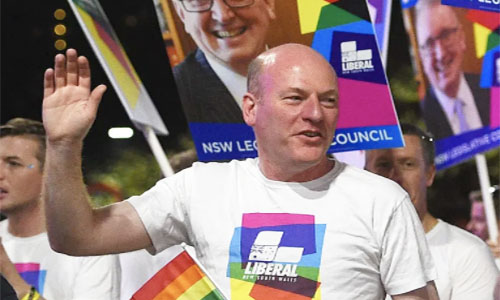A new dawn has arrived. A paradigm shift unlikely to be repeated in our lifetimes. In what has been labelled the ‘The Podcast Election’, the once ‘all-powerful’ US mainstream media has been felled and their predisposition for anointing kings and queens taken from them. With the narrative gatekeepers vanquished by a rag-tag, upstart group of rabble-rousers and comedians, the question becomes what can Australia learn from this historic moment that will have global implications… The result will bring a ray of hope to Australians staring down a government hellbent on installing a raft of new censorship and disease control bureaucracies leading up to an election in 2025. The hour is late and the independent media in Australia is still maturing. The stakes are high but one thing is for sure, no one can stop the death spiral of legacy media.
For many across the West, the events in the US feel like a resounding vindication – like a weight lifting off our collective shoulders, a vindication of the deeply held feeling that our elected representatives no longer represent us and are beholden to larger interests. For dreamers, believers, and strivers all around the world, the election of Donald Trump symbolised a return to the values that defined our shared culture for decades. Shared values like merit, equal opportunity, and due process. But as the fallout of the elections continues, wise voices have pointed out that November 5 was not the finish line but merely the sound of the starter pistol and the hard work of excising the institutional and cultural rot begins now in earnest. In the case of Australia, this metaphor is even more prescient. With an upcoming federal election and a power-hungry incumbent government. If the resistance movement was looking for a jump start of energy, they got it.
For the Australian corporate news outlets, the event was also a seismic tremor. They’ve also shredded their credibility to pieces in the process of opposing the rise of Trump over the years. They are every bit as guilty of the lying and gaslighting of their US counterparts, positioning themselves as the leaders of the resistance to an historically emphatic democratic mandate of all things. They are also now coming to grips with the total and utter collapse of their influence on the people on behalf of government and powerful corporations. Perhaps the biggest take away from it all is that they have lost young people, traditionally the vanguard of the Left, the youth are deserting their classical political allies en masse. Legacy media is haemorrhaging youth.
So what is driving this shift? Well if you asked the corporate media it’s seething toxic masculinity and misogyny, of course. They will tell you that these independent podcasts and media ecosystems are bastions of bigotry and hatred appealing to alienated young males. The actual crime these podcasters are guilty of is being genuinely curious and very humorous. Their transgressions include talking to different people, from different walks of life, having honest conversations and oh yeah having a laugh while they’re at it. It all starts to make sense when you think about it. Telling young men to look after their health, to work hard and to get their life together while having a jolly time, well that’s just not going to vibe with the dower corporate media which has abandoned the values of personal responsibility and meritocracy for the progressive and embittered politics of gender and race.
One of the key learnings of the US election cycle, a defining moment for many and a symbolic failure of the Harris/Walz campaign was the decision not to go on the Joe Rogan Experience. The decision was inherently a lost opportunity to engage male voters and what it demonstrated was not just a reluctance or inability to connect with this demographic, but an indifference to them and their needs. But for many it emphasised what many had suspected – that Kamala Harris was a deeply flawed candidate with an inability to have a free-form conversation and not just traffic in pre-prepared talking points. Free-form conversations are one of the defining characteristics of the podcast format. Unedited, unscripted, authentic, and conversational, they are enough to make a politician’s skin crawl and Kamala couldn’t crawl away fast enough. Most Australian politicians would also drown in the format. Can you imagine Peter Dutton doing a three-hour conversation with a comedian discussing the nuances of social mobility? Or Anthony Albanese having a long-form open-ended discussion about what it means to be Australian? For people like President-elect Donald Trump the spotlight is his natural habitat. He is accustomed to being the focus of every room he walks into. He has lived a vibrant life outside of politics worthy of a long-form conversation. For his multifaceted and articulate running mate JD Vance, telling rich and authentic stories of growing up in the Rust Belt, rising up to serve his country and later become a venture capitalist makes for compelling listening. And while the independent media landscape in Australia has only a fraction of the influence of their US counterparts, the risk Dutton and even more so Albanese face of losing the youth vote is a very real prospect in 2025.
So what long-form yarns, chinwags and tall tales can we expect from the leaders of Australia?
Buckle up kids, we’re about to find out.









